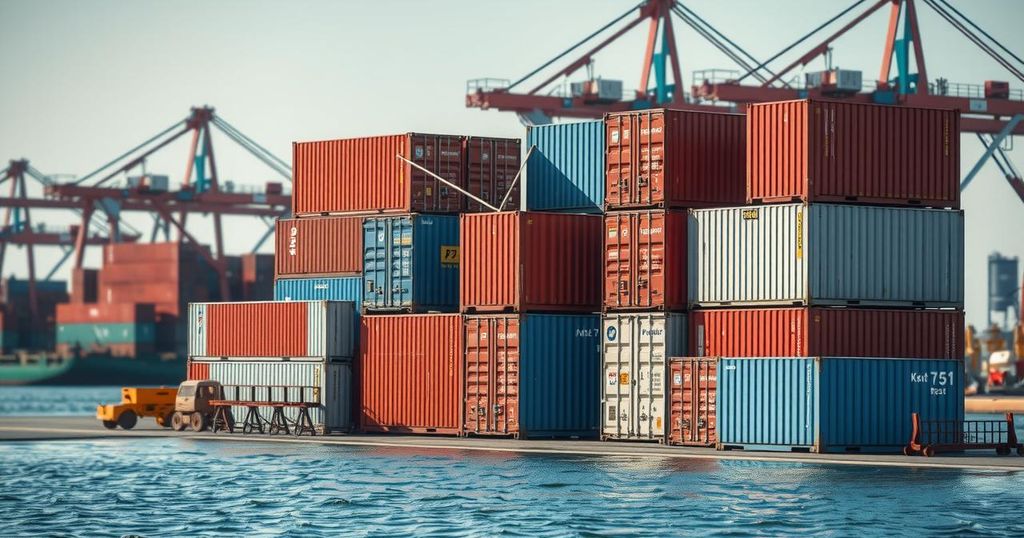Trump Implements Tariffs on Imports from Canada, Mexico, and China
President Trump has imposed new tariffs of 25% on goods from Mexico and Canada, and 10% on imports from China, stating it is to protect Americans. This has triggered immediate retaliatory tariffs from Canada and Mexico, raising concerns about a potential trade war and increasing inflation. The declaration of a national emergency underpins these tariffs, with implications for US foreign trade relations.
On Saturday, President Donald Trump enacted significant tariffs on imports from Mexico, Canada, and China, imposing a 25% tariff on goods from the North American neighbors and a 10% tariff on all Chinese imports. He stated that these tariffs were essential for protecting American citizens and linked them to a national emergency regarding drug trafficking and illegal immigration.
The tariffs have sparked rapid retaliatory responses from Canada and Mexico. Canadian Prime Minister Justin Trudeau announced equivalent tariffs on up to $155 billion worth of American imports, while Mexico’s President Claudia Sheinbaum similarly initiated retaliatory measures. These actions follow Trump’s long-standing threats of tariffs during his presidential campaign and his tenure in office, despite warnings from economists about the potential for a trade war leading to additional consumer costs and negative economic impacts.
Trump’s tariff implementation is poised to escalate tensions with key trading partners, presenting risks to both domestic and international economies. While Trump defends his position as a protective measure for American interests, the immediate retaliation from Canada and Mexico highlights the precarious nature of trade relationships under these conditions. Economists and political observers express concerns about rising prices and the overall economic ramifications.
Original Source: www.aljazeera.com






Post Comment